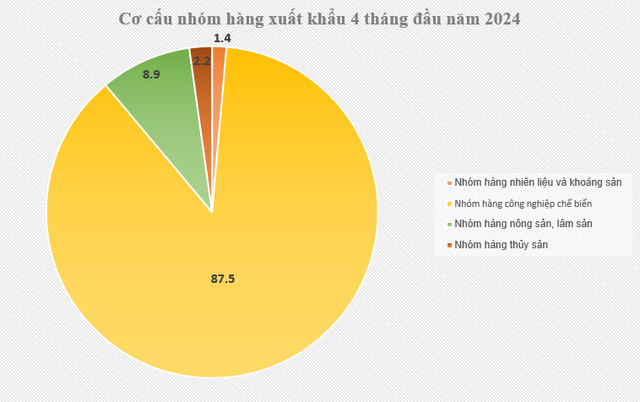The Consequences of Falsifying Registered Capital
According to legal regulations, the value of registered capital is determined by investors and business owners. At the time of establishment and throughout the operation, capital contributors, shareholders must ensure that the registered capital is sufficient and timely to cover the operating expenses and investment projects of the company.
In certain industries, specific requirements for statutory capital (minimum capital) are imposed to ensure financial stability and security, such as in the banking sector. Therefore, credit institutions, foreign bank branches must maintain the actual value of registered capital or the minimum capital required by law. This reflects the importance of ensuring a certain threshold of capital, which reflects the necessary capacity for operations in these specific sectors.

Risks of contributing registered capital. Illustration: DNCC |
In addition to ensuring the value of registered capital, the law also stipulates the responsibility to fully and timely contribute capital. Business owners and investors must make the required capital contributions within 90 days from the date of issuance of the Certificate of Business Registration. In cases where the required capital is not contributed correctly and completely as registered, the parties need to reduce the value of contributed capital to ensure compliance with the law.
Falsifying registered capital and not contributing the required capital as registered, or intentionally undervaluing contributed assets, is a prohibited act under the law. This poses economic risks to the company itself, business partners, and the rights of investors.
These regulations reflect the strict requirements of the law in terms of maintaining transparency, reliability, and the actual resources of the company. Additionally, the government has published information on the registered capital officially registered by companies on the National Business Registration Portal.
The failure to contribute sufficient registered capital is a serious issue and a major obstacle that can disrupt the entire process of business transactions, mergers, and acquisitions (M&A).
The consequences of this issue go beyond the violation of capital contribution deadlines and the obligation to reduce capital according to the law. It creates a difficult situation for both the competent state authorities and the parties involved in M&A. In cases where the competent state authorities allow the parties to rectify and proceed with the transaction, it inadvertently legitimizes the previous violations and is contradictory to the current law.
However, not allowing the transaction to proceed impedes and causes congestion in the process, preventing the related parties from completing the transaction despite accepting all necessary measures to address previous issues.
This confusion not only affects ownership rights in the company but also causes businesses to miss out on investment opportunities and the potential for development they bring. Furthermore, this issue has broader implications for the overall development of the economy, undermining investor confidence and having a negative impact on the business environment.
Therefore, resolving this bottleneck requires flexible research and approach from both state authorities and businesses in complying with the legal regulations to ensure the best interests of all parties.
Criminal Risks in Capital Transfer
The issues of transfer and capital mobilization in businesses related to the failure to contribute sufficient registered capital or artificially inflating registered capital have become hot topics in Vietnam. High-profile cases such as at Faros Construction Joint Stock Company and Sen Tài Thu Group are typical and alarming. The acts of fabricating and falsifying documents, capital contributions, and arbitrarily increasing registered capital not only distort the financial information of the company but also create conditions for misappropriation of assets from investors.
Both of these cases have in common the fact that misappropriation of assets stems from the fictitious inflation of registered capital, which is not substantial and only exists on paper. As a result, these two companies are accused of misappropriating the “actual” assets of investors in the stock market in the Faros case and the business partners’ contributing capital in the Sen Tài Thu case.
Vietnamese criminal law defines the offense of fraud and misappropriation of assets as the use of deceitful means to instill trust in the owner or manager of assets and transfer those assets to commit misappropriation.
Therefore, the transfer and capital mobilization in businesses without contributing sufficient registered capital before participating in transactions carry the risk of criminal consequences. This behavior fulfills two elements: the use of deceitful means through the artificially inflating registered capital which is not substantiated, and from that, misappropriating the assets of trusting investors.
In reality, fraudulent conduct involving the inflation of registered capital is becoming increasingly common in society. Therefore, it is crucial to enhance checking, verification, and preventive measures before engaging in transactions. When participating in transfers or capital contributions to businesses, investors should consider using a range of measures to enhance financial and legal security.
Firstly, verify the legitimacy and accuracy of the information regarding the company’s registered capital on the government’s public information system.
Secondly, require the transferor or capital-raising company to provide financial reports of the company, particularly audited reports by independent auditing firms. This helps to ensure the authenticity of information about registered capital objectively and detects any errors in a timely manner for rectification.
Furthermore, require the transferor or the company raising capital to provide documents proving the increase in capital, sufficient contribution, and accurate registered capital, such as decisions of the board of members, the general meeting of shareholders, the board of management, minutes of receiving contributed assets, capital contribution documents through banks, etc. At the same time, the parties should consider conducting legal due diligence through professional legal service providers before deciding to trade to detect any abnormalities and prevent risks of capital-related fraud.
Additionally, in light of the serious situations mentioned above, state authorities need to strengthen supervision and inspection of capital increases in companies; supplement appropriate mechanisms for handling cases of violations; propose and recommend the application of risk management measures and strict actions against parties involved in violations to contribute to the protection of investor rights and ensure the soundness, transparency of the market.
Xuân Đạt – Thanh Duy (Lawyers at Pros Legal Law Firm)





































